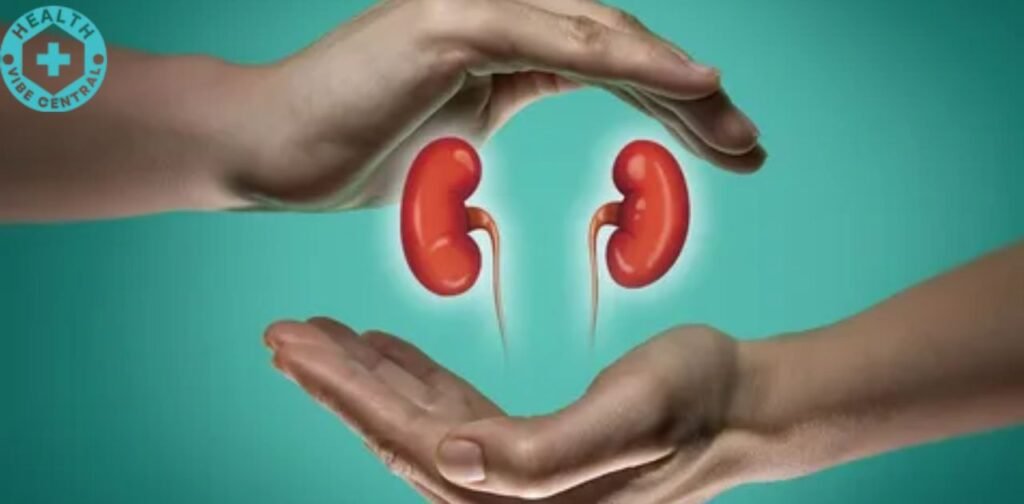
Renal disease in its chronic and end-stage form represents an important global medical condition which can be fatal. Blood cleansing functions among other critical tasks pair with blood pressure control and electrolyte management in the two small organs positioned in the lower back. Kidney dysfunction resulting from performance failure generates detrimental health effects and further brings about medical complications. The prevention of kidney disease starts with multiple effective measures to stop its initial development. This paper presents straightforward methods people can use to prevent kidney damage.
1. Understanding Kidney Disease
First I aim to deliver essential information regarding prevention then I will define kidney disease before proceeding with its prevention strategies. Kidney disease or chronic kidney disease refers to broken kidney tissues that prevent proper blood filtering. This condition is also known as kidney disease. The condition results in kidney failure which requires dialysis treatment or kidney donor transplantation as the only remedies.
Causes of Kidney Disease:
- The extended rise of blood sugar levels creates diabetic nephropathy and harms kidney structures for people who have diabetes.
- Hypertension (High Blood Pressure) applies physical tension to blood vessels throughout the kidney while causing functional breakdown of the organs. The disease process of glomerulonephritis results from inflammation which affects the blood-filtering glomerular units of the kidney.
- Polycystic Kidney Disease appears as an inherited disease that produces kidney damage by creating fluid-filled cysts in or near kidneys.
- The failure to treat urinary tract infections (UTIs) before their due time will eventually lead to kidney stress.
2. Recognizing Risk Factors
Create defensive approaches to fight kidney disease development by learning about these risk factors.
Some common risk factors include: People who reach their sixties and above face increased chances of kidney disease occurrence.
Two factors make a family history a cause of kidney disease: the first is when another health condition destroys kidney tissue and the second is when there exists a genetic predisposition or blood vessel complications.
Obesity serves as a well-established origin of diabetes and hypertension resulting in worse kidney disease progression. Type-2 diabetes and high blood pressure together with heart diseases collectively enhance the risk of developing kidney disease.
. Maintain a Healthy Diet
A proper diet has direct effects on maintaining kidney health preservation. To stop kidney disease from developing people should follow these dietary recommendations:
Among all food types fruits and vegetables remain the richest source of body-replenishing vitamins and minerals together with antioxidants.
Diets containing fruits and vegetables support inflammatory health and promote kidney function along with reducing inflammation problems.
Scientific research shows human bodies require at least five different portions of fruits and vegetables during each 24-hour cycle.
The heart benefits from whole grains which include brown rice together with quinoa and whole grain bread because they contain abundant fiber.
These foods serve to regulate blood sugar concentration. Too much protein is needed to build body tissue yet excessive protein adds pressure to kidney health.
The dietary protein adjustments of patients with kidney disease should always require a medical consultation.
Also read More info about Health
4. Regular Exercise
The management of kidney disease relies heavily on blood pressure and weight control both which require exercise as a vital treatment component.
Some straightforward methods to include exercise in your daily life include: Perform exercise for thirty minutes everyday at moderate level through activities that include walking cycling or swimming for five days each week.
Activities performed in any duration eventually build up so brief activities will add to your health benefits as well. When deciding exercise activities maintain preference for those activities which bring you pleasure.
5. Monitor Your Blood Pressure and Blood Sugar
Data from RD Ina Good reveals that individuals with diabetic and hypertension conditions must perform regular blood sugar and blood pressure screenings to avoid kidney disease progression according to “Kidney Disease Prevention.”
The following steps allow you to maintain tracking: Monitoring blood pressure regularly should keep the readings below 120/80 mm/Hg because this represents the desirable range. Professional advice for hypertension control is needed when you detect elevated blood pressure readings. The continued lack of blood pressure control causes blood vessel weakening inside the kidneys. .
People with diabetes must consult their physician to determine the suitable levels of blood sugar for their bodies. Regular use of the mention system helps prevent kidney damage from accumulating during the course of time. The majority of frequent health problems lead to cardiovascular disease yet both blood sugar testing and balanced eating can help prevent it altogether.
6. Avoid Smoking and Limit Alcohol Intake

7. Regular Health Check-ups
Early diagnosis of kidney illness becomes achievable through regular medical appointments with your doctor. These elements must be on your mind when you visit your doctor:
Medical professionals perform standard blood examinations to study kidney function by assessing creatine levels and blood urea nitrogen (BUN) results.
A high level of creatine and blood urea nitrogen in blood stream typically suggests that kidney problems exist.
A person with kidney problems reveals themselves by allowing protein or blood to leak during urination and leading to detectable changes in urinalysis results.
A specified clinical test enables medical analysis of kidney health which could be beneficial for you.
8. Be Mindful of Medications
The kidneys risk damage from specific drugs during correct administration but improper drug use causes further damage. Several pointers exist to help you use medications safely.
Follow Prescriptions Carefully: Patients need to follow prescription directions exactly as their health practitioner prescribes.
The use of less than recommended amounts of medication fails to treat arthritis and any pain while ibuprofen as well as other commonly used NSAIDs undermines kidney health.
You should contact your doctor whenever you want to know if a specific medication poses risks to your kidneys.
When patients display such symptoms their doctor may choose to give different medications that pose reduced kidney harm. The doctor needs to know all your drug consumption and supplementary intake.
9. Manage Stress
The research demonstrates how continuous stress creates multiple health issues which endanger kidney operation. Multiple methods exist to effectively manage stress as portrayed below.
People should practice relaxation techniques because scientific evidence shows that yoga meditation and deep breathing combat stress while improving overall health.
The effectiveness of this method requires only short daily sessions to work. Activities shared with friends and loved ones have a dual purpose to reduce stress and create feelings of belonging because broken social connections often bring loneliness or anxiety.
10. Educate Yourself About Kidney Health

People gain significant benefits through education therefore it serves as an effective policy to prevent kidney disease. Education about kidney disease can be acquired through several different means.
Read literature about kidneys along with the procedures for preventing kidney diseases. The informative material provided by the National Kidney Foundation alongside other mentioned organizations proves beneficial for acquiring knowledge.
20. Conclusion
People gain significant benefits through education therefore it serves as an effective policy to prevent kidney disease. Education about kidney disease can be acquired through several different means. Read literature about kidneys along with the procedures for preventing kidney diseases. The informative material provided by the National Kidney Foundation alongside other mentioned organizations proves beneficial for acquiring knowledge. You should become part of support groups which help people facing health problems to interact with other members within these groups.